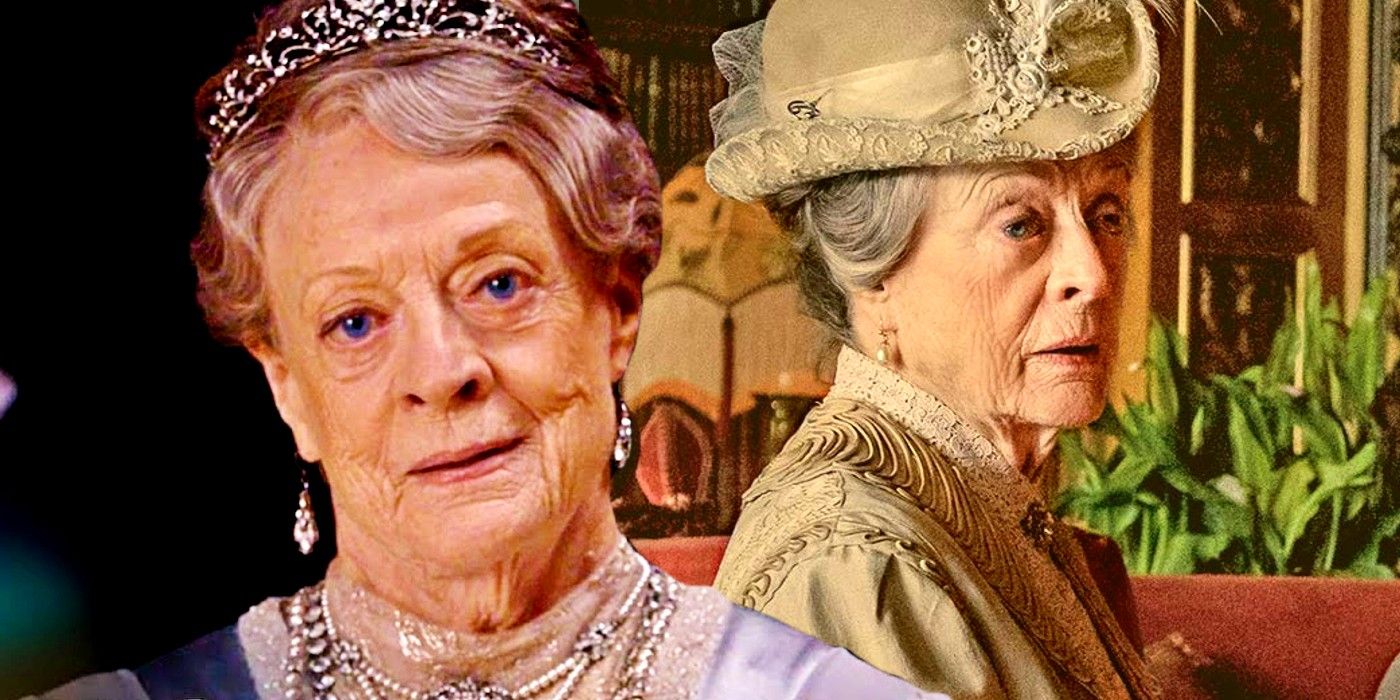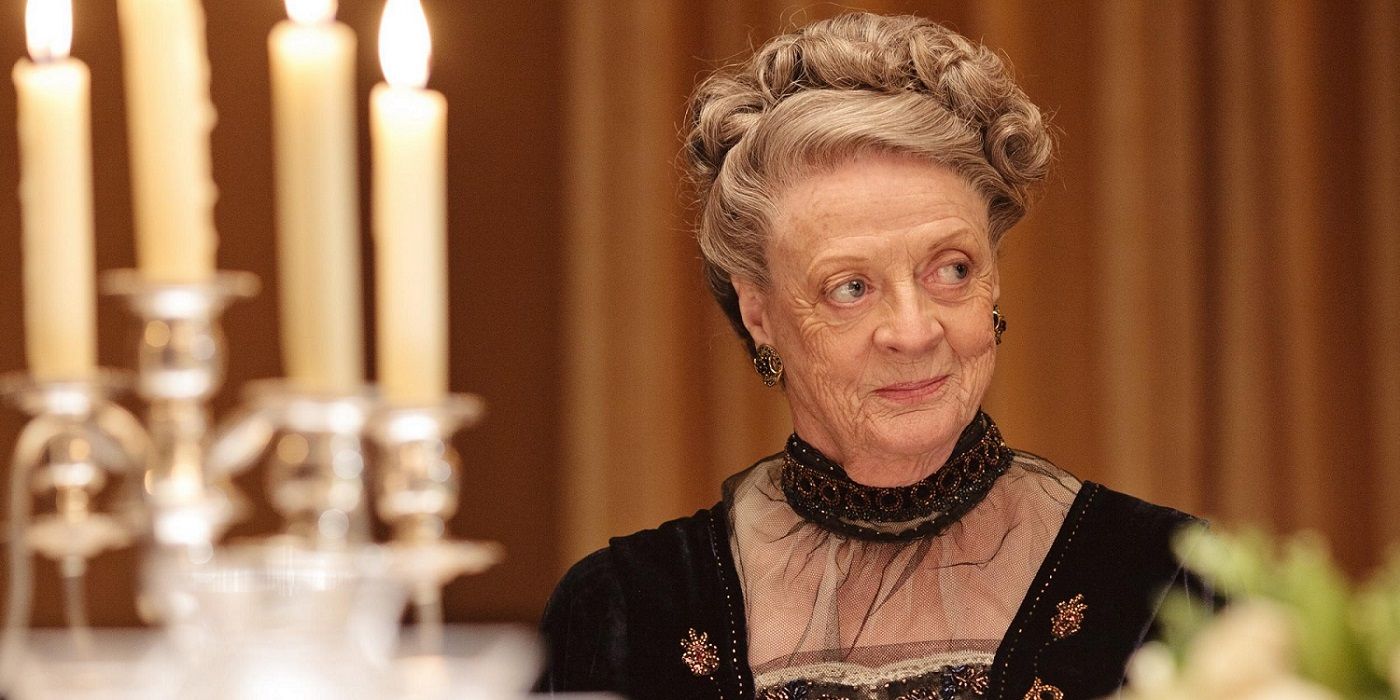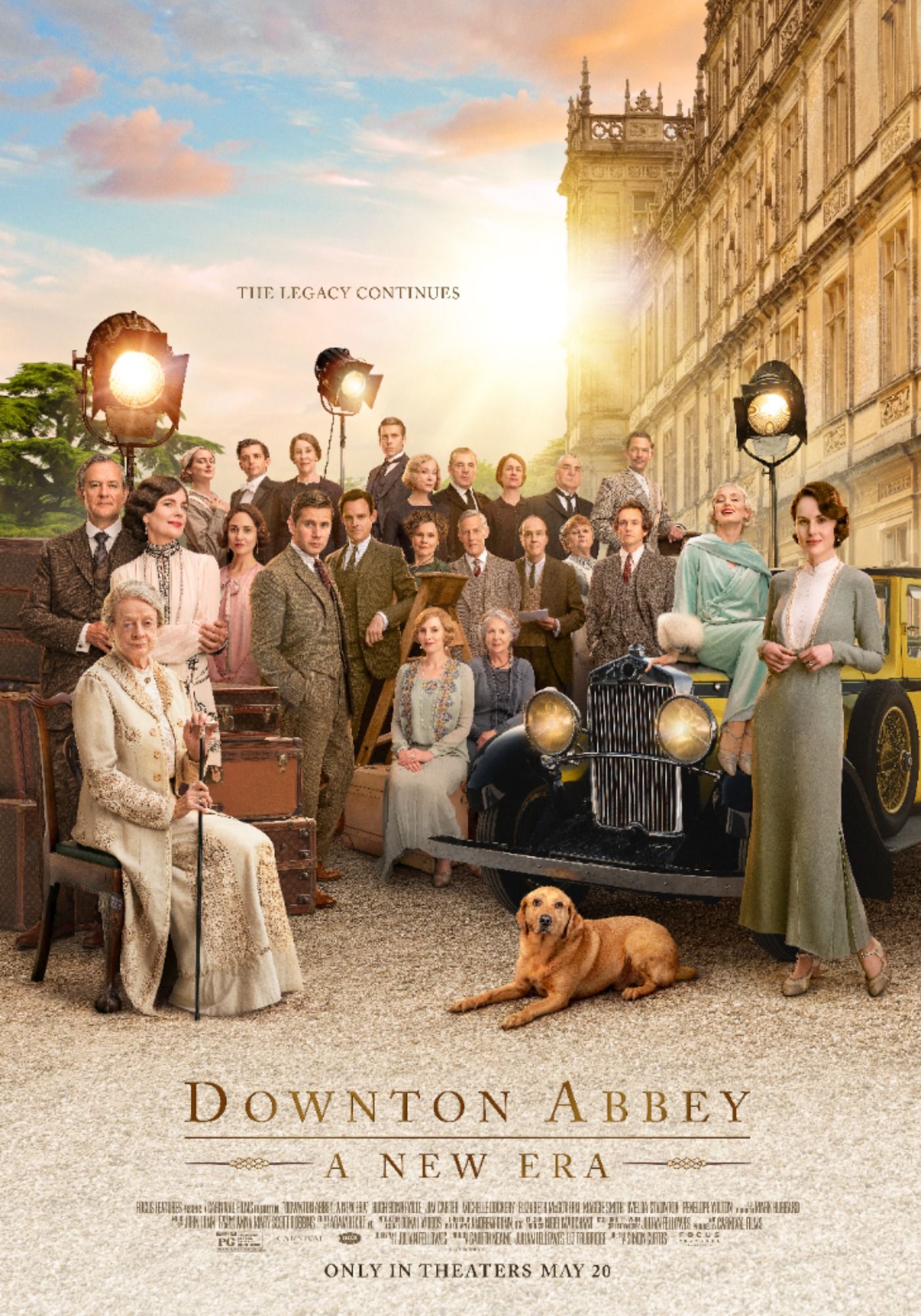Warning! Spoilers for Downton Abbey: A New Era ahead.
Downton Abbey: A New Era came with the huge surprise that Maggie Smith's Dowager Countess of Grantham, Violet Crawley, returned for the sequel — ruining the first movie's perfect ending for the character. Unfortunately, the pleasant revelation of her continued presence at Downton undoes the emotional ending to the first Downton Abbey movie, ruining what was set up as a passing-of-the-torch moment. While Smith's return is no doubt a bonus for fans, it comes at a great cost to the story. Here's what happens to Violet on Downton Abbey and how her story carried over to A New Era.
In the first Downton Abbey movie, Lady Violet tragically revealed that she had been to a medical consultation in London that had led to a grave diagnosis. In other words, Downton Abbey's ending is somewhat overshadowed by the reveal that Smith's beloved Dowager was dying and had little time left to live. Somewhat typically, she affirmed her defiant refusal to die quietly, insisting on living the remainder of her life as she had always lived while also sharing a touching moment to reflect on her legacy with Lady Mary (Michelle Dockery). Carrying over from the first movie, Lady Violet does die of her illness at the very end of A New Era, but her presence, in general, felt like a plot point, cheapening her final farewell.
The scene in the first Downton Abbey movie showing Mary's discovery of Lady Violet's tragic secret gave the eldest Crawley child a chance to speak for the audience, telling the Dowager that she would live on as long as Downton stood. What followed was a loaded sequence that seemed to suggest Violet was saying goodbye, with a close-up of her watching her family enjoy the royal dance at Harewood House. Crucially, the Downton Abbey movie also confirmed that she saw Lady Mary as her replacement, and felt confident leaving Downton in her hands. There seemed no room for doubt: this was her farewell and the announcement of a future without her, but she came back for Downton Abbey: A New Era, which finally clarifies what happens to Violet on Downton Abbey. Disappointingly, her presence was in and out of the film, and she had no major effect on the storyline other than her ownership of the French villa. While she did get a great death scene at the very end, the passing of the torch was rather ineffectively rehashed in the movie and took the weight out of the first Downton Abbey movie's farewell.
Downton Abbey: A New Era Wasted Lady Violet
Given Downton Abbey's Lady Mary's struggles with legacy and the daunting future that lay ahead for Downton during the movie's events, having the Dowager anoint her as the Abbey's de facto protector was a fitting ending, but Downton Abbey: A New Era essentially relays the first movie's groundwork despite finally answering what happens to Violet on Downton Abbey. The movie finishes Violet's story in a needlessly drawn-out way that also involves some entertaining but ultimately insubstantial flirting with a film director. In the first Downton Abbey movie, Mary gained renewed purpose, firmed up by the knowledge that Lady Violet would no longer be around to look after Downton Abbey. In A New Era, this comes to fruition, but the dramatic beats had already been laid out so well that it's an unnecessary retread of recent events in Downton Abbey's timeline.
While it's always good to see more of Maggie Smith's prickly matriarch and the plot of her illness was finally played out, it comes at the cost of what was already an ideal send-off for her and reduces her to a passenger with no impact on the broader narrative. Her involvement doesn't affect how Robert Crawley's A New Era story works at all, for example, as she's just one of three elements he becomes terrified of losing alongside his wife and family name. This would have provided exactly the same character motivation if she were absent. Extending her story beyond the point of saying goodbye was limiting, and Downton Abbey: A New Era should've lived up to its title by moving beyond the Age of Violet Crawley to move the narrative forward in a more meaningful way. However, her final words, “Stop that noise, I can’t hear myself die,” make her presence well worth the admission.



